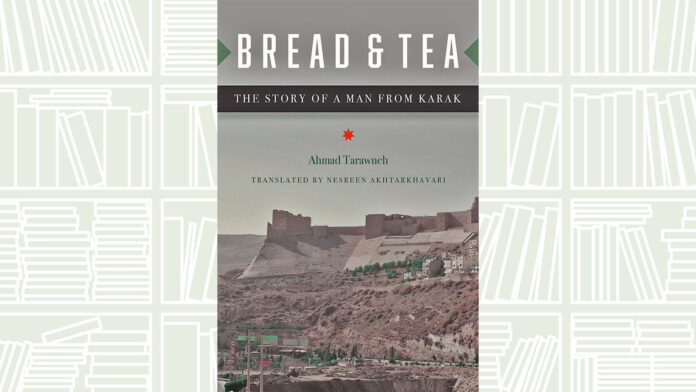CHICAGO: From the south of Jordan comes the desperate tale, “Bread and Tea: The Story of a Man from Karak,” by award-winning novelist Ahmad Tarawneh. The novel begins with two middle-aged grave-robbers, Abu Ahmad and Abu Khalil. Their lives have taken a turn for the worse after serving in the Jordanian forces in their youth and then being abandoned by them in their later years. Left to dig for and steal artifacts to provide for their families, their poverty pushes them to the brink, where money takes precedence over familial bonds.
Their fates are tied to their children, who eventually grow up and grow apart as one
becomes a member of the Jordanian security forces and the other a member of a militant Islamic group.
In the introduction by the translator and series editor of the Arabic Literature and Language series, Nasreen Akhtarkhavari, she says that the novel, which was originally published in 2016 in Arabic, is a study of the “social, political, and historical realities of not only Jordan but the Arab region,” according to the author. Tarawneh, writes Akhtarkhavari, hails from the south of Jordan and chose the setting purposefully, as he did the characters — who are inspired by real-life events mixed with his own mythological and gothic elements. The story has a complex plot with many character offshoots but at its heart is a story of desperation, revenge and consequence.
Tarawneh’s imagery is haunting and resolute. When readers meet Abu Ahmad and Abu Khalil, they are scavenging from the Romans at Al-Nakhl site. They consistently justify their thievery by saying the relics from the past belong to them as much as they do to the nation, both left behind. Their Nabatean ancestors knew they would be starving, according to the brothers, and therefore they are only taking what is due to them, as “the people in these graves are more merciful to you and me than the living.”
Surrounded by a band of characters from Karak, including an antiquities dealer, history teacher, their wives and children, Tarawneh’s characters are distinct in their imperfection. He creates an atmosphere of distrust with hints of love and loyalty. And as his characters climb in and out of graves, he seamlessly moves from the living to the dead, the circumstances of each attached to one another through history.
Weaving a story with elements of light and dark, shadow and flesh, life above and below ground, Tarawneh’s novel settles into revenge that leads its characters onto paths even they cannot foresee. When attempting to escape a repeating of history, the future is only a journey into the inevitable.

